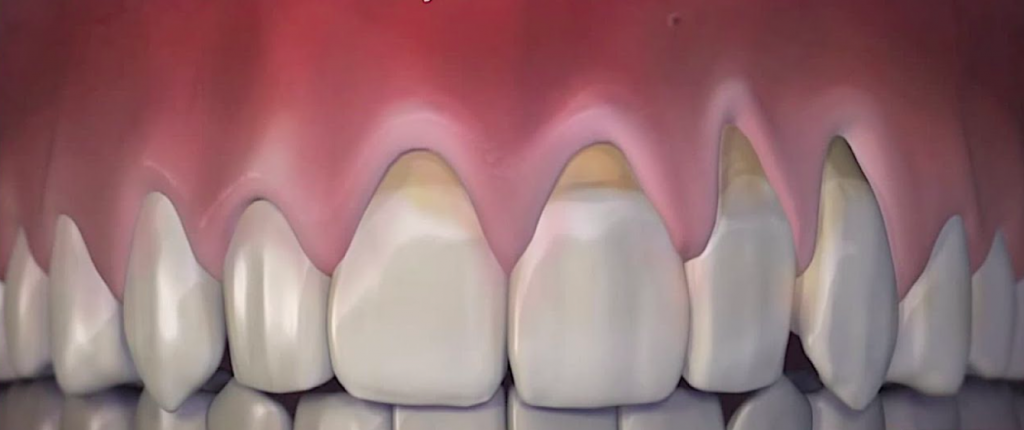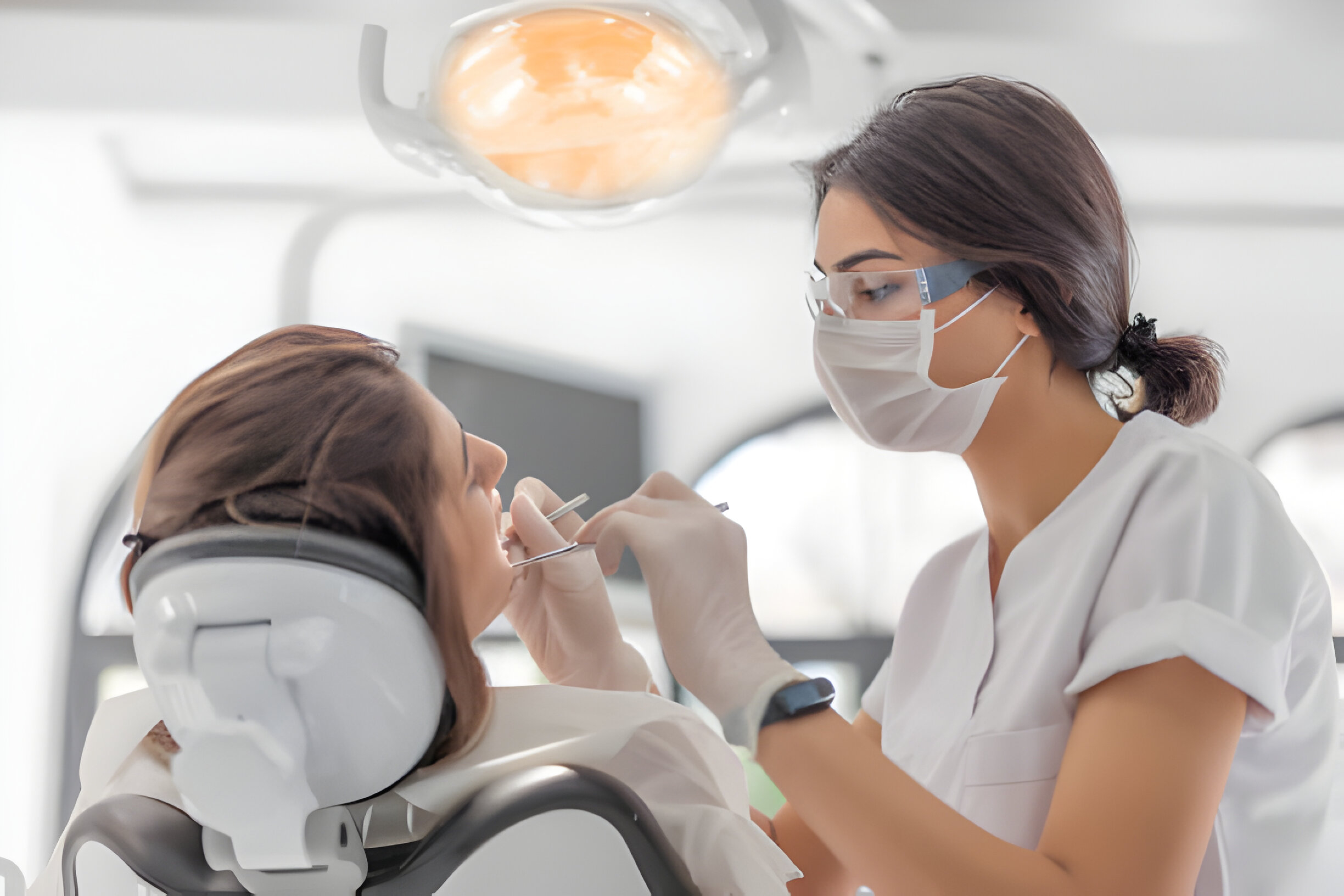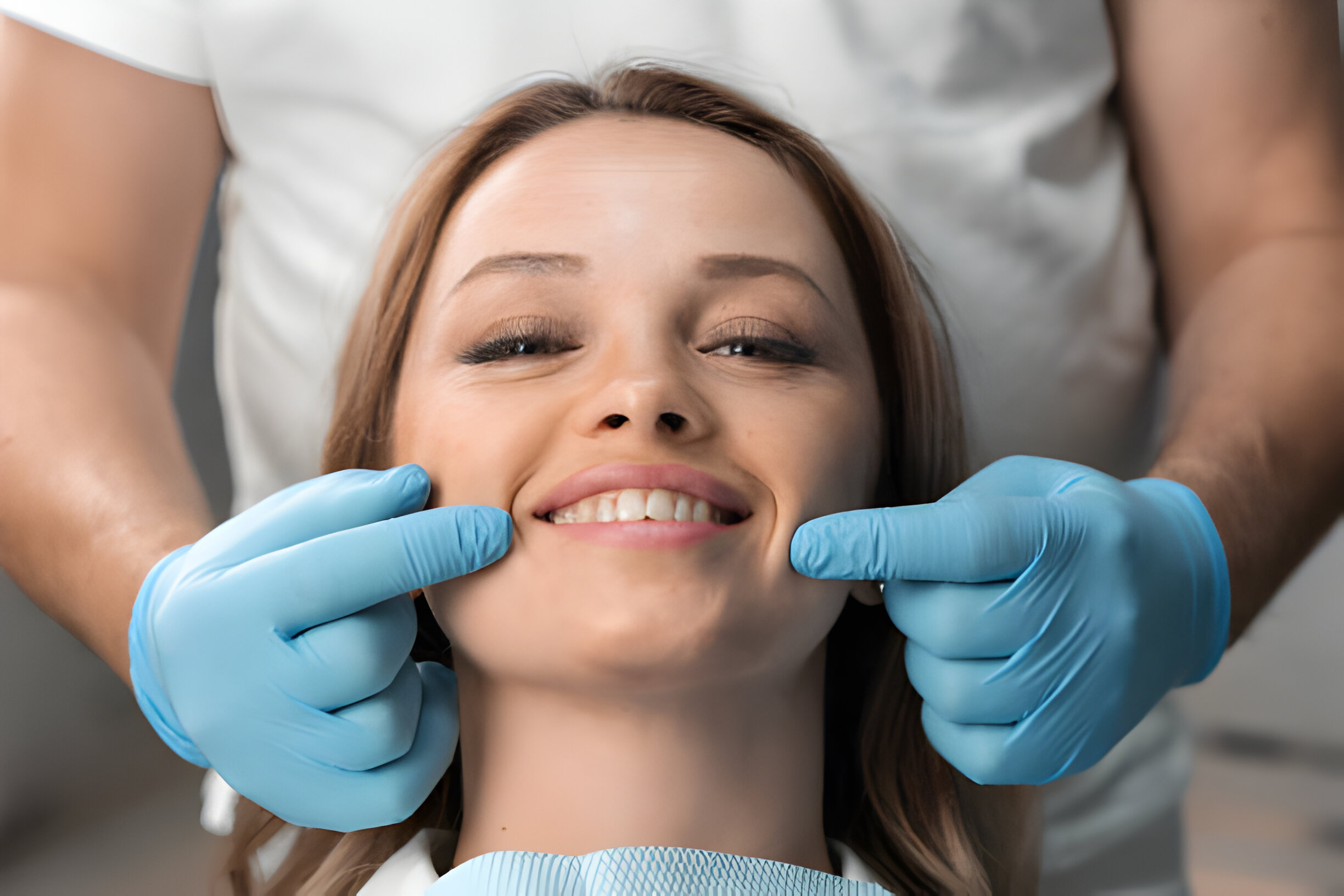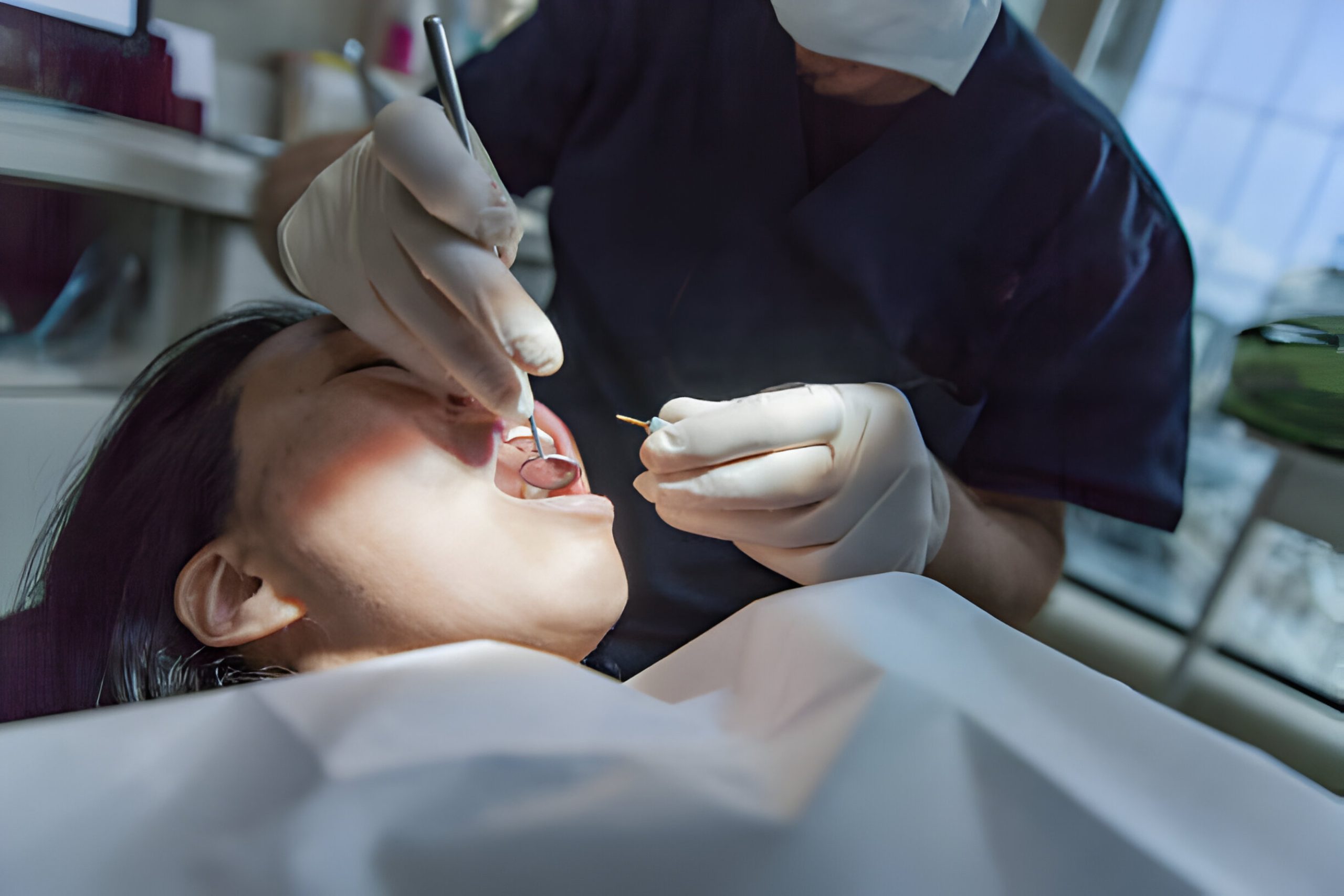
There are many things a person can do to prevent and even reverse gum disease.
These steps include:
- Brushing your teeth properly
- Choosing the right toothpaste
- Flossing daily
- Properly rinsing out your mouth
- Using mouthwash
- Getting regular dental checkups
- If you smoke…quitting
Here are Seven Ways to Keep Gums Healthy
Following these habits will help you in caring for your teeth and gums properly, which, in turn, will help prevent gum disease.
1 – Brush Your Teeth Properly
Brushing properly is key to having healthy gums. The American Dental Association recommends that people follow these guidelines:
- Brush at least twice a day using a soft-bristle toothbrush and fluoride toothpaste.
- Replace the toothbrush every 3 to 4 months, or sooner if the bristles begin to fray.
- Brush the teeth at a 45-degree angle to the gums.
- Press gently and move the toothbrush in short strokes.
2 – Get Dental Checkups Regularly
Dental checkups at Kiefer Family Dental include a professional cleaning of the teeth and gums. A professional cleaning is the only way to remove tartar from the teeth. A professional cleaning also helps eliminate the plaque that may have been missed when brushing.
With regular checkups, a dentist can help identify the early signs of gum disease and gingivitis. Early detection can help prevent more severe problems from occurring.
3 – Choose the Right Toothpaste
The toothpaste aisle in most stores will contain many varieties of toothpaste, from whitening products to formulas containing baking soda. When choosing toothpaste, ensure that it contains fluoride and has the ADA seal of approval on the packaging.
4 – Rinse Your Mouth Out
Many people rinse their mouths out after brushing their teeth. When a person washes their mouth out with water after brushing their teeth with fluoride toothpaste, they wash away the fluoride.
However, when a person rinses their mouth out after eating, they may rinse away food and bacteria that can lead to plaque and tartar.
5 – Floss Daily
Most people don’t floss. They completely neglect daily flossing. But flossing is a very important part of oral care. Flossing removes food and plaque from between the teeth and gums. If the food and plaque remain in these areas, it eventually leads to tartar. Tartar is a hard buildup of bacteria that only a dentist can remove. Tartar eventually leads to gum disease.
6 – Rinse With Mouthwash
Mouthwash can help:
- Prevent gum disease
- Reduce the speed at which tartar builds up
- Reduce the amount of plaque on the teeth
- Remove food particles from the mouth
However, you should not use mouthwash as a replacement for brushing and flossing.
Also when buying mouthwash, look for the ADA seal. This seal indicates that the manufacturer has demonstrated enough evidence to support the product’s safety and effectiveness.
7 – Stop Smoking
According to the Centers for Disease Control and Prevention, smoking makes a person more susceptible to gum disease because it weakens the immune system.
The CDC recommends quitting smoking immediately to help reduce the risk of developing gum disease.
We at Kiefer Family Dental hope that the tips for healthy gums was helpful. The office of Kiefer Family Dental provides the best in modern dentistry for individuals and families including solving all dental issues you may encounter.
Our highly-qualified dentists and gentle hygienists work hard to combine knowledge and skill with the latest in technology to give our patients the best possible dental outcomes. With services ranging from periodontal therapy, oral surgery. dental implants, dentures and even being set up for Invisalign clear braces, Kiefer Family Dental is your Evansville, Indiana A+ dental choice. Call (812) 424-9506 or use the website to book an appointment online.





